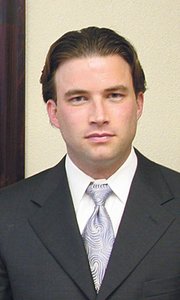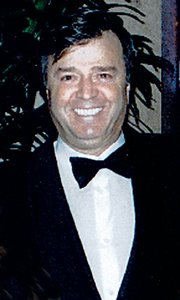Executive Turmoil at Innovo
Innovo Group Inc., the maker of Joe’s Jeans and Indie apparel, may be delisted from the NASDAQ if it doesn’t get its board of directors in order.
The delisting could hamper the company’s plans to sell the money-losing blue jeans firm, based in Commerce, Calif., to another venture.
After a second independent member resigned within weeks from Innovo’s eight-member board of directors, NASDAQ officials on Feb. 2 warned that the publicly traded company could be delisted if it doesn’t add another independent director to its board by its next shareholder meeting later this year.
The letter followed the Jan. 31 resignation of Vincent Sanfilippo, who had been on the board since July 2003. Sanfilippo, the chief investment officer and principal of Urdang Capital Management Inc. in Pennsylvania, said the resignation had nothing to do with the firing of Innovo’s chief executive in January.
Rather, his company is being acquired by The Bank of New York Group Inc., resulting in a “change of business circumstances at the firm by which I am employed,” Sanfilippo wrote in his resignation letter.
Three independent members and three Innovo executives are on the company’s board of directors. Dean Factor—who, with his brother, Davis Factor, owns Smashbox Studios in Culver City, Calif., the site of Mercedes-Benz Fashion Week at Smashbox Studios—resigned from the board on Jan. 11. Factor’s resignation occurred one day after the board fired longtime Chief Executive Jay Furrow, whose father, Samuel J. Furrow Sr., is Innovo’s chairman of the board. Jay Furrow remains on the board until the next annual meeting of the company’s shareholders. Marc Crossman, who was the company’s president and chief financial officer, has stepped in as interim chief executive. Crossman did not return phone calls to comment on the company’s future.
In his resignation e-mail, Factor said he agreed with the board’s decision to fire Furrow, who will receive $400,000 in severance pay, and to hire an investment banking firm to look for a buyer. “I believe Jay is not the right person to run this business, and I believe that selling the business is the best course of action,” Factor wrote in an e-mail.
But Factor complained that as an independent board member, he felt he was there just to approve whatever management wanted. “I do not feel management has enacted any of the board’s suggestions and this has put Innovo in the situation it is in,” Factor wrote.
Innovo—whose principal stockholders include Paul Guez and his brother, Hubert Guez, who own more than 25 percent of the company—has had a few rocky financial years. The company had a net loss of $8.3 million on $83.2 million in revenues during fiscal 2003 and a net loss of $9.5 million on $104.7 million in revenues in fiscal 2004. In recently reported financial data, the company announced it had a net loss of $16.4 million on revenues of $108.6 million for fiscal 2005.
Its stock was trading on Feb. 7 at around 75 cents after having a 52-week high of $6.61 on May 19, 2005.
Innovo used to be based in Knoxville, Tenn., where it made denim aprons for hobbyists, denim and canvas backpacks, sports bags and other accessories. The company moved into designing and manufacturing blue jeans after Jay Furrow and his father met the Guez brothers, who wanted to manufacture some of Innovo’s denim products at the Guez’s Mexico denim factory. The Guez brothers began collaborating with the Furrows on other projects and began acquiring Innovo stock.
Innovo officially relocated to the Los Angeles area in 2002, moving into the same office building occupied by the Guez brothers and their various businesses, which operate under the names Azteca Production International Inc., Blue Concept LLC and Antik Denim, among others.
From Azteca, Innovo acquired the business to make private-label jeans for retailers such as American Eagle Outfitters Inc. and Target.
Innovo had a rough start when it moved to California. It invested heavily in two labels associated with two popular musicians, Eve and Bow Wow. But those labels had production problems and never really found a spot on consumers’ must-have lists. Eve took her label, Fetish by Eve, to Marc Ecko Enterprises in 2004. —Deborah Belgum























